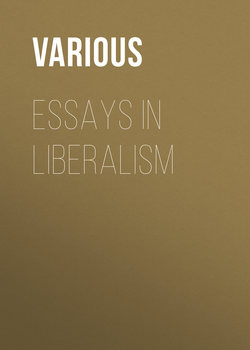Читать книгу Essays in Liberalism - Various - Страница 3
THE LEAGUE OF NATIONS AND THE REHABILITATION OF EUROPE
By the Rt. Hon. Lord Robert Cecil
The Two Views of the League
ОглавлениеThere is what I may call the empirical view of the League. There are those of us in this country, and indeed all over the world, who, profoundly impressed with the horrors of war, hating war from the bottom of their hearts as an evil thing—a company which must include, as far as I can see, all Christian men and women—these people, impressed with the horrors of war, look about for some means of keeping it away, some safeguard against its renewal. And they say: “We have tried everything else, we have tried the doctrine of the preparation for war as a great safeguard of peace; we have tried the doctrine of the Balance of Power; we have tried the doctrine of making one State or group of States so powerful that it can enforce its will on the rest of the world. We have tried all these expedients, and we are driven to the conclusion that they lead not to peace, but to war. Is there anything else?” And then they come quite legitimately to the League as their last hope of preserving the peace of the world. I was talking to a distinguished Frenchman the other day, and that was his attitude. It is the attitude of a great many people. In my judgment it is quite sound as far as it goes. But it is not inspiring. It depends in the last resort merely on a frank appeal to the terrors of mankind.
Against that view you may set the more fundamental way of approaching this question. You may say if you are to have peace in the world it is not enough merely to provide safeguards against war. You must aim at creating a new international spirit, a new spirit in international affairs; you must build from the very foundations. That is the positive as opposed to the negative way of approaching this question. It is not enough to cast out the war spirit and leave its habitation swept and garnished. You have to replace the war spirit by a spirit of international co-operation. And that is the way of regarding this great movement which some people think can be disposed of by describing it as idealism—a favourite term of abuse, I learn, now, but which seems to me not only good politics and good morality, but common sense as well.
